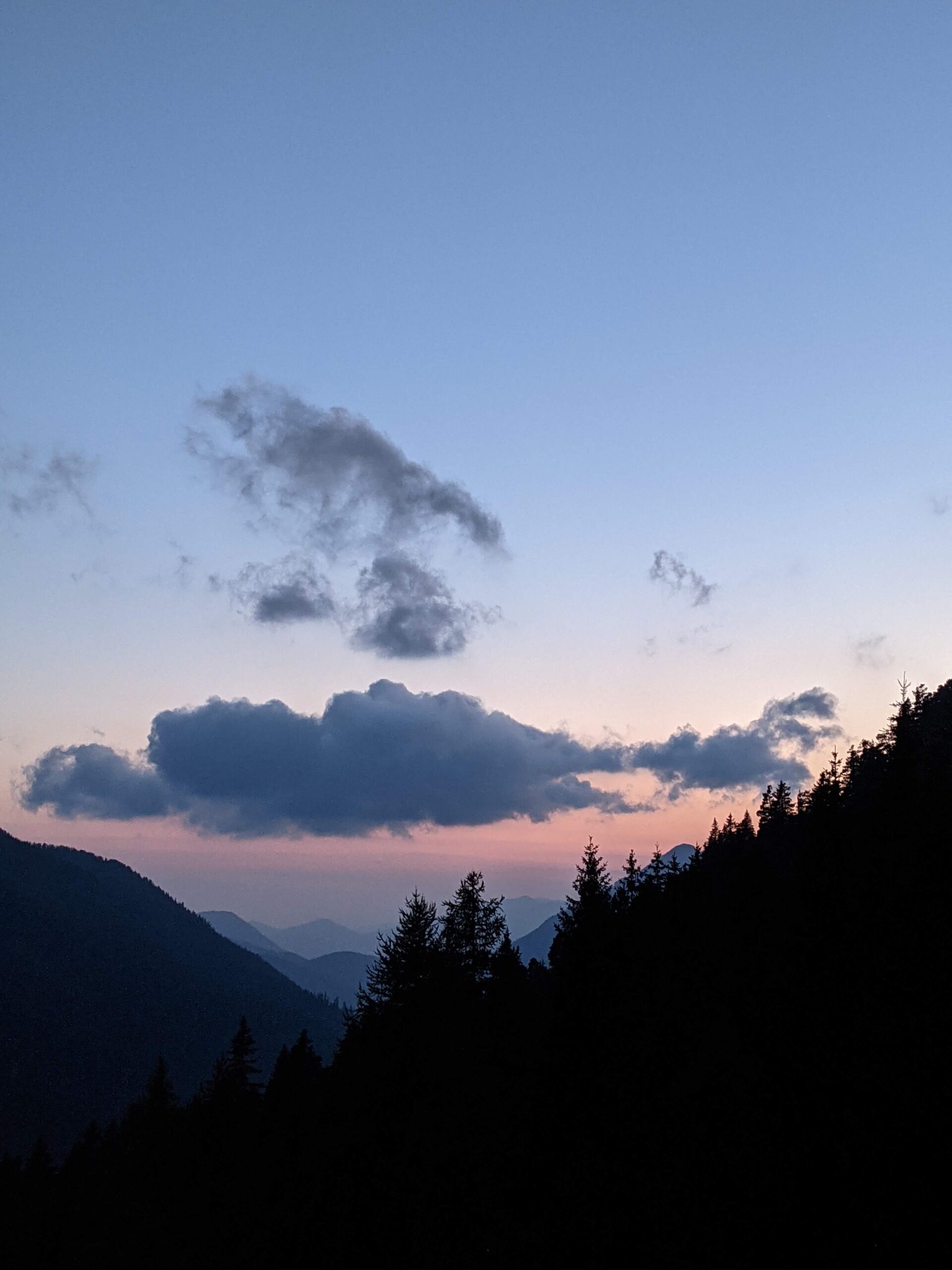
In 1940 my 20-year-old mother, Margit Reich became a refugee when she fled from Antwerp with her older cousin, Suri Schonbrunn. They were on the run for three years before reaching Saint-Martin-Vésubie. By then the Schonbrunn family consisted of Suri, her husband Yossel and three small children aged 1, 4 and 5.
During the summer of 1943, the Jews in Saint-Martin-Vésubie lived under “Résidence Forcée”. They were not permitted to leave the town and were obliged to report twice daily to the Italian authorities. Mom knew French but not Italian. Nevertheless, to the end of her days, she was to remember her Italian number. Twice a day she presented herself as duecentoquattro (204). That was all they wanted to hear from her; her name was of no interest.
When the time came to flee once again, Mom and her cousin joined the others in the climb up to the Col de Fenestre. She remembers looking up to see the long line of people ahead following the path of switchbacks. Her cousin brought a couple of strollers for the two youngest ones. As they climbed higher it became impossible and the strollers had to be abandoned at the side of the path.
Suri used a scarf to support the weight of the baby. The 4- and 5-year-old boys were too heavy to be carried for long. My mother did her best to encourage them to walk. To motivate them she would point to a spot up ahead and tell them that if they could only get that far, a truck would be along to carry them the rest of the way. Apparently, they had indeed been promised a truck, but Mom did not really believe that.
They were hungry, so when they passed an apple orchard, they ate more than they should have. Perhaps the apples were not properly ripe. Mom remembers eating until her mouth puckered.
She remembers that they spent three days and two nights in those mountains. They would spread blankets for the children to sleep on at night. Mom and Suri took it in turns to watch over the children so they wouldn’t be trampled by the cows. It grew chilly at night but there weren’t enough blankets for the adults. While one stood guard the other would warm herself at a fire built by a group of young people. They sang songs such as Arum dem Fayer. I can’t help but wonder how many of the young people around that fire survived the Shoah.
— Elaine McKee
The words of Arum dem fayer:
| Around the campfire We sing songs The night is sweet We don’t get tired And if this fire Goes out The heavens shine With their stars So crown our heads With flower garlands Around the fire We dance happily Since dance and songs Are our life And then in sleep Dreams will glide. | Arum dem fayer Mir zingen lider Di nakht iz tayer Men vert nit mider Un zol dos fayer Farloshn vern, Shaynt oyf der himl Mit zayne shtern To kroynt di kep Mit blumen-kranstn Arum dem fayer Mir freylekh tantsn Vayl tants un lider Iz undzer lebn, Dernokh in shlof Khaloymes shvebn. | אַרום דעם פֿײַער, מיר זינגען לידער, די נאַכט איז טײַער, מען ווערט ניט מידער און זאָל דאָס פֿײַער פֿאַרלאָשן ווערן, שײַנט אױף דער הימל, מיט זײַנע שטערן. טאָ קרױנט די קעפּ מיט בלומען־קראַנצן , אַרום דעם פֿײַער, מיר פֿרײלעך טאַנצן. װײַל טאַנץ און לידער איז אונדזער לעבן, דערנאָך אין שלאָף חלומות שוועבן. |
